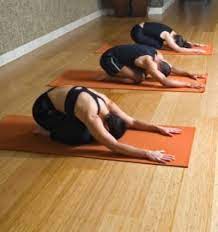Anxiety disorders are the most common mental health conditions. If you are one of the millions of people who suffer from anxiety, you know how debilitating it can be. Fortunately, there is help available. Physical therapy is a treatment option that can help reduce anxiety symptoms and improve your quality of life. In this blog post, we will discuss how physical therapy can help treat anxiety and provide some tips for finding a qualified therapist.
Contents
What Is Anxiety?

Anxiety is a normal emotion that we all feel at times. It’s our body’s way of preparing us to deal with a perceived threat. However, when anxiety becomes excessive, it can take over our lives and make everyday activities incredibly difficult.
For some people, anxiety can be so debilitating that it interferes with work, school, and personal relationships. If you’re struggling to manage your anxiety, physical therapy may be able to help.
What Is Physical Therapy?

Physical therapy is a type of treatment that uses movement and exercise to improve your physical and mental health. It can help treat a wide variety of conditions, including anxiety.
Can Physical Therapy Help With Anxiety?
Yes, physical therapy can help treat anxiety. Physical therapy can help to reduce the symptoms of anxiety by helping to relax the body and mind. Physical therapy can also help to increase the level of endorphins in the body, which can help to improve mood and reduce stress.
If you are suffering from anxiety, physical therapy may be a good treatment option for you. Physical therapy can help to reduce the symptoms of anxiety and help you to live a more normal life.
What Type Of Physical Therapy Are Good For Anxiety?

The type of physical therapy for anxiety are as follows:
Massage therapy
It is a type of physical therapy that uses touch to help relieve pain and tension in the muscles. It can also help improve circulation and increase relaxation.
Acupuncture
It is a type of physical therapy that involves inserting thin needles into the skin at specific points on the body. This can help to relieve pain and tension in the muscles.
Chiropractic
It is a type of physical therapy that involves adjusting the spine and other joints in the body. This can help to relieve pain and tension in the muscles.
Yoga
It is a type of physical therapy that uses stretching and breathing exercises to help improve flexibility and relaxation.
Tai chi
It is a type of physical therapy that uses slow, gentle movements to help improve balance and coordination.
Aerobic exercises
There are various types of aerobic exercises that help in reducing stress and anxiety
- Walking
- Jogging
- Cycling
- Swimming
- Dancing
These are a type of aerobic exercise that helps to increase your heart rate and breathing.
These are some of the most common types of physical therapy for anxiety.
Anxiety can be treated with physical therapy, but it is important to choose the right type of physical therapy for you. If you have any questions, be sure to ask your doctor or physical therapist.
What Are The Benefits?
The benefits of physical therapy for anxiety are as follows:
Overall Health
PT can help to improve your overall physical health and well-being: Often, people who suffer from anxiety disorders also have other physical health problems. Physical therapy can help to address these underlying issues and improve your overall physical health, which can in turn help to reduce anxiety levels.
Healthy coping mechanism
PT can help to teach you healthy coping mechanisms. One of the main goals of physical therapy is to teach patients healthy coping mechanisms for dealing with pain and other issues. These same coping mechanisms can be used to help deal with anxiety.
Routine and structure
PT can provide a sense of structure and routine. For many people, anxiety can be triggered by a feeling of chaos or lack of control. Physical therapy can provide a much-needed sense of structure and routine in your life, which can help to reduce anxiety levels.
Healthy lifestyle habits
PT can help you to develop healthy lifestyle habits. Another goal of physical therapy is to help patients develop healthy lifestyle habits. These healthy habits can include things like proper nutrition, exercise, and sleep hygiene. Developing these habits can help to reduce anxiety levels and improve overall health.
Reduce Stress levels
PT can help to reduce stress levels. Stress is a common trigger for anxiety attacks. Physical therapy can help to reduce stress levels by teaching patients relaxation techniques and providing a supportive environment.
If you suffer from anxiety, physical therapy may be helpful. Talk to your doctor or a physical therapist to learn more about how PT can help you manage anxiety.
Tips
There are a few tips to be tried at home. They are:
Stay active
Exercise is a great way to reduce stress and anxiety. It releases endorphins, which have mood-boosting effects. A moderate amount of exercise is the key to maintaining mental health. Too much or too little exercise can worsen anxiety symptoms.
Connect with nature
Spending time in nature can help reduce stress and anxiety. Research shows that interacting with nature can help improve mood and mental well-being.
Consider complementary therapies
Some complementary therapies, such as yoga, meditation, and massage, can help reduce stress and anxiety.
Get enough sleep
A good night’s sleep is important for overall health and can help reduce stress and anxiety.
Eat a healthy diet
Eating a balanced diet is important for maintaining mental health. Certain foods, such as omega-3 fatty acids, have been shown to reduce anxiety symptoms.
If you’re struggling with anxiety, physical therapy can be an effective treatment option.
Conclusion
It may be concluded that physical therapy for anxiety is an effective treatment option that can provide patients with long-term relief from their symptoms. While there is still more research to be done in this area, the evidence so far suggests that PT can be a helpful tool in managing anxiety disorders. If you or someone you know is struggling with anxiety, please consider talking to a licensed physical therapist about how they can help.
Physical Therapy help patients recover from pain. If you’re experiencing Back pain, Shoulder pain, Knee pain, Neck pain, Elbow pain, Hip pain, or Arthritis pain, a physical therapist at MantraCare can help: Book a physiotherapy session.


